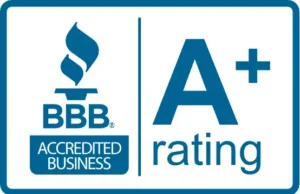Currently, Synchrony offers low monthly payments and many financing options. You can have your home repaired now and pay later with one of Synchrony's six monthly payment programs.
High Island, located in Galveston County, Texas, presents unique challenges for homeowners when it comes to maintaining structural integrity. This coastal community, situated near the Gulf of Mexico, experiences specific environmental conditions that can significantly impact residential foundations. Understanding the importance of house leveling in this area is crucial for property owners looking to protect their investment and ensure the safety of their homes.
The geographical location of High Island in Galveston County exposes homes to various environmental stressors that can compromise foundation stability. The area’s proximity to the Gulf Coast means properties regularly face high humidity levels, salt air exposure, and severe weather events including hurricanes and tropical storms. Additionally, the region’s clay-rich soil composition is particularly susceptible to expansion and contraction cycles caused by moisture fluctuations, leading to foundation settlement and structural issues over time.
Furthermore, the coastal environment contributes to accelerated corrosion of foundation materials and can cause erosion around the perimeter of homes. These factors collectively create an environment where regular foundation maintenance and potential leveling services become essential for homeowners in High Island.
Homeowners in High Island should remain vigilant for several warning signs that may indicate foundation problems requiring professional leveling services. Visible cracks in walls, particularly around door frames and windows, often serve as early indicators of foundation settlement. Additionally, doors and windows that stick or fail to close properly can signal structural shifting.
Other common signs include uneven or sagging floors, gaps between walls and ceilings, and exterior cracks in brick or siding. Homeowners may also notice that furniture appears uneven or that marbles roll across floors, indicating potential slope issues. When these symptoms appear, it’s important to contact a foundation specialist promptly to assess the situation and determine if house leveling is necessary.
Professional house leveling in High Island involves a systematic approach to restoring proper foundation alignment and stability. The process typically begins with a comprehensive inspection to identify the extent of settlement and determine the most appropriate correction method. Foundation specialists use specialized equipment to lift and level the affected areas of the home.
For residential properties in Galveston County, the leveling process may involve installing piers or pilings to provide additional support, particularly important given the area’s challenging soil conditions. Allied Foundation focuses exclusively on residential services, ensuring homeowners receive specialized attention tailored to their specific needs. The company does not provide commercial services, allowing them to concentrate their expertise on residential foundation issues common to the High Island area.
Throughout the leveling process, professionals work carefully to minimize disruption to the home’s structure while ensuring long-term stability and protection against future settlement issues that are common in this coastal region of Texas.
Proudly Serving High Island for over 40 years!


